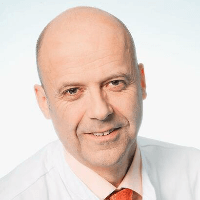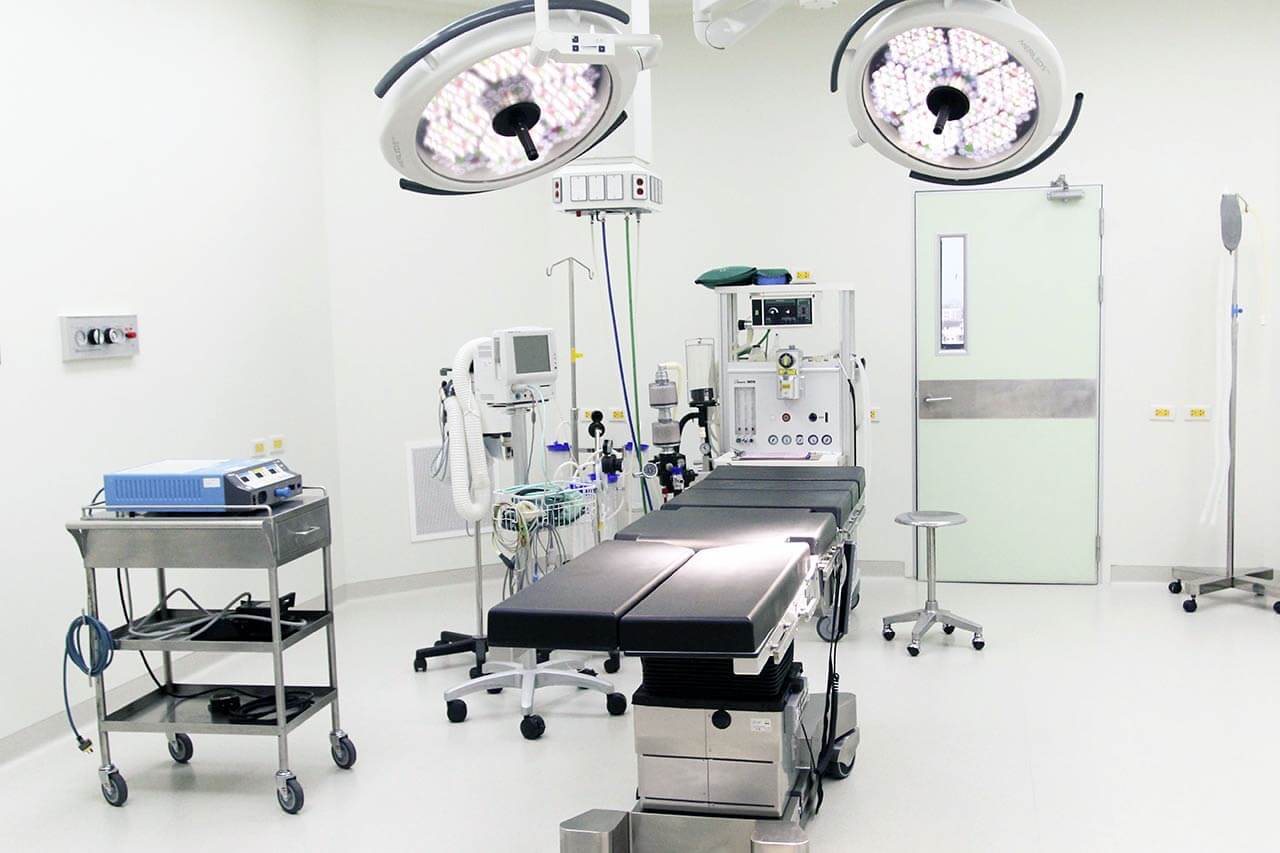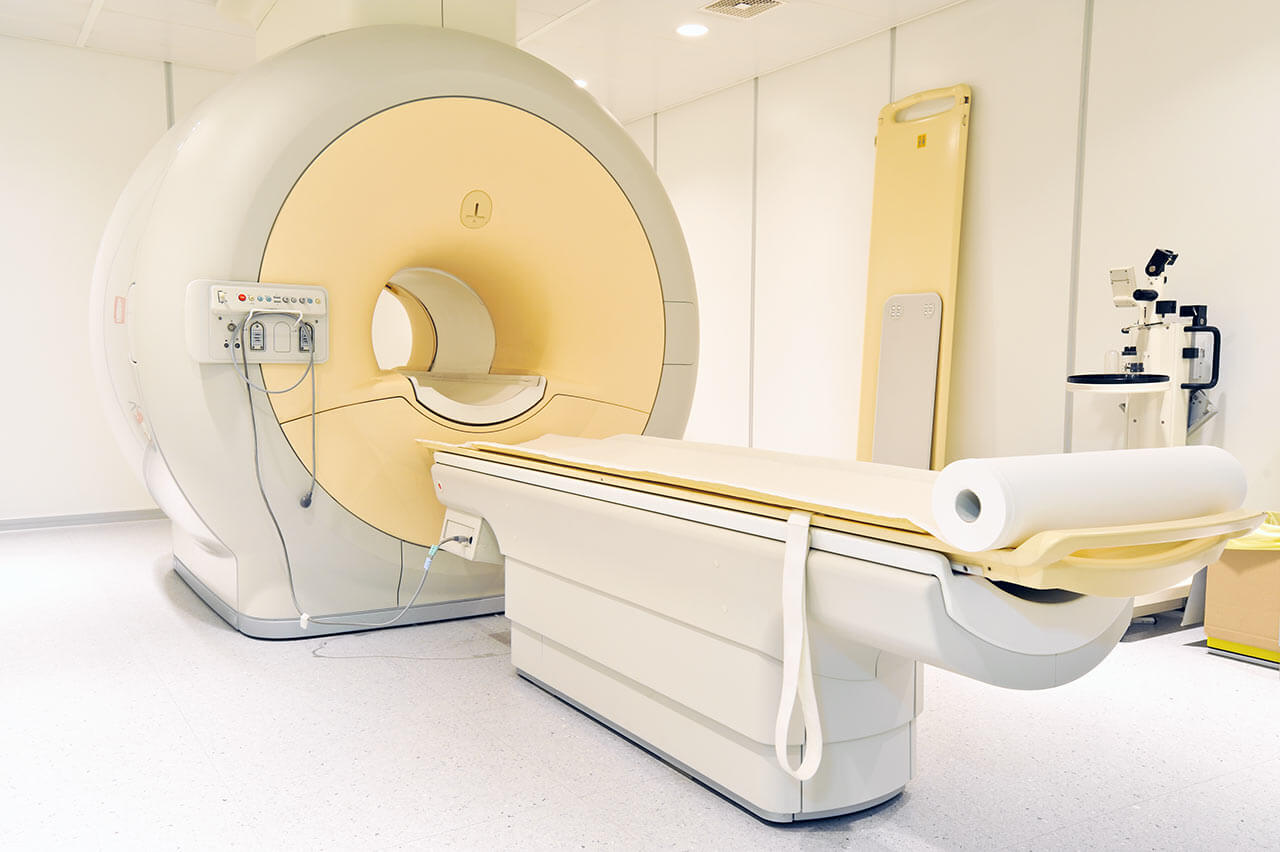
The program includes:
- Initial presentation in the clinic
- clinical history taking
- review of medical records
- physical examination
- laboratory tests:
- complete blood count
- biochemical blood analysis
- blood coagulation analysis (aPTT, PT, INR)
- inflammation indicators (CRP, ESR)
- metabolic analysis of blood
- kidney function test (creatinine, urea)
- color doppler echocardiography
- color doppler sonography of cerebral and peripheral vessels
- CT angiography (on indication 1300 €)
- MRI angiography (on indication 1900 €)
- nursing services
- consultation of related specialists
- consultation of the chief physician and all leading experts
- development of individual treatment plan
- written statement
Required documents
- Medical records
- X-ray examination (if available)
- MR/CT-angiography (if available)
Service
You may also book:
 BookingHealth Price from:
BookingHealth Price from:
About the department
The Department of Vascular Surgery at the Hospital Schwabing Munich offers all the options of modern medicine for the treatment of vascular diseases. The department specializes in the surgical treatment of vascular pathologies, performing both minimally invasive operations and hybrid interventions, which combine open and catheter-assisted surgical techniques. The department has an excellent medical and technical base, therefore it provides high-precision diagnostics and effective treatment of vascular diseases of any severity. The department's medical team most often admits patients with aortic aneurysms, carotid artery stenosis, occlusive peripheral arterial disease, diabetic foot syndrome and chronic non-healing wounds, as well as varicose veins. The specialists from related medical fields are often involved in the therapeutic process – cardiac surgeons, neurologists, angiologists, cardiologists, radiologists and neuroradiologists. An interdisciplinary approach allows the doctors to achieve the best treatment results. The department's doctors devote enough time to communication with their patients in order to be able to meet their individual needs and wishes as much as possible.
The department is headed by Prof. Dr. med. Andreas Maier-Hasselmann. The specialist has long successful clinical experience, and is also a co-author of the recommendations of the German Society for Angiology for the treatment of occlusive peripheral arterial disease and diabetic foot syndrome.
One of the most common and dangerous vascular pathologies is aortic aneurysm, which, due to the absence of particular symptoms, in most cases is diagnosed accidentally. If untreated, an aneurysm rupture is life-threatening, since it causes a severe haemorrhage. Thoracic and abdominal aortic aneurysms are most common in the department's clinical practice. The Chief Physician of the department, Prof. Andreas Maier-Hasselmann, has over 30 years of experience in the treatment of aneurysms, so the patients can be sure that they trust their health to a highly qualified professional. To provide the surgical treatment of aortic aneurysm, the medical specialists use sparing surgical techniques, which allow the patient to avoid classical open intervention. In some cases, hybrid surgery may be required. The main treatment for aneurysms is the implantation of special stents. Prior to the operation, the doctors carry out 3D planning, while all the surgical procedures during the operation itself are performed under X-ray guidance. The department's team of surgeons also performs emergency surgical procedures for the patients with ruptured aneurysms. The period of hospitalization after surgery is 4-5 days, and a few weeks after the treatment the patient will fully recover and can return to his usual lifestyle.
The treatment of carotid stenosis is also of particular interest to the department's medical team. The pathology is dangerous, since it significantly increases the risk of stroke, which in many cases can cause irreversible neurological damages or lead to death. To make a diagnosis, the department's specialists use color duplex scanning. The examination is absolutely safe and allows the doctors to accurately determine the degree of narrowing of the carotid arteries. If the diagnosis is confirmed, the patient's clinical case is considered at an interdisciplinary board with the participation of vascular surgeons, neurologists, angiologists, cardiologists, radiologists and neuroradiologists. The specialists cooperatively decide on the optimal type of therapy. If surgical treatment is required, the patient will undergo carotid endarterectomy. When performing this operation, the surgeon opens the artery and removes atherosclerotic plaques. The operation can be performed both under general and local anesthesia. During the intervention, the specialists use progressive monitoring systems to control the indicators of vital bodily functions, which guarantees the maximum safety of the operation.
The department's service range is complemented by the treatment of lower extremity peripheral artery disease, which causes serious circulatory disorders, provoking pain and limited mobility. To restore the patency of peripheral arteries, the department performs minimally invasive catheter-assisted interventions, hybrid operations and bypass grafting.
The department's key clinical focuses include:
- Surgical treatment of aortic aneurysms (special attention is paid to the treatment of thoracic and abdominal aortic aneurysms)
- Minimally invasive surgery
- Hybrid surgical procedures
- Emergency surgery for aortic rupture
- Surgical treatment of carotid artery stenosis
- Carotid endarterectomy
- Surgical treatment of lower extremity peripheral artery disease
- Minimally invasive balloon dilation and stent implantation
- Hybrid operations
- Bypass grafting
- Surgical treatment of varicose veins
- Stripping
- Surgical treatment of diabetic foot syndrome and chronic non-healing wounds
- Other medical services
Curriculum vitae
Higher Education
- Study of Human Medicine at Ludwig Maximilian University of Munich.
Professional Career
- Since February 2014 Head of the Department of Vascular Surgery at the Hospital Schwabing Munich, and since 2016 – Chief Physician in the Department of the same name at the Hospital Bogenhausen Munich.
- Senior Physician with management responsibilities in the Department of Vascular and Endovascular Surgery at the Hospital Neuperlach.
- Until 2003 Work in the Department of Surgery (specialization – abdominal surgery), University Hospital Regensburg.
- 1999 Deputy Chief Physician of the Department of Abdominal and Thoracic Surgery at the District Hospital in Erding.
- Until 1996 Resident Physician, Department of Surgery, Dr. Rinecker Surgical Hospital.
Academic Career
- Since 2013 Lecturer at the Technical University of Central Hesse in Giessen.
- 2017 Honorary Professorship at the Technical University of Giessen.
Qualifications
- Board certification in General Surgery, Abdominal Surgery and Vascular Surgery.
- Qualification in Emergency Medicine.
- Certified Endovascular Surgeon, German Society of Vascular Surgery.
- Certified Wound Care Specialist (WTcert DGfW).
Memberships in Professional Societies
- German Society of Wound Healing and Wound Treatment (DGfW).
- Member of the editorial group for the development of recommendations of the German Society of Wound Healing and Wound Treatment (DGfW) within the Association of the Scientific Medical Societies in Germany (AWMF).
- Professional Association of German Surgeons (BDC).
- German Society for Vascular Surgery and Vascular Medicine (DGG).
Photo of the doctor: с) München Klinik Schwabing
About hospital
The Hospital Schwabing Munich is one of the oldest medical facilities in the Schwabing region with a history of over 100 years. The hospital is proud of the excellent state-of-the-art equipment, modern infrastructure, highly professional medical personnel and location in a picturesque park area. The medical complex is the academic hospital of the University Hospital of Ludwig Maximilian University of Munich and the University Hospital Rechts der Isar Munich, therefore, it offers unique innovative diagnostic and treatment methods. The treatment can be provided both on an inpatient and outpatient basis. The work of the medical center is based on an individual approach to each clinical case, as well as on the strictest adherence to high standards of quality, hygiene and safety.
The hospital has a large number of beds for patient hospitalization – more than 700 beds. The medical facility admits over 125,000 patients for diagnostics and treatment, and this figure grows steadily every year, which indicates the authority of the hospital not only in the region, but also throughout the country. In addition, the medical center often admits foreign patients for medical treatment.
The hospital presents almost all the main areas of modern medicine, including oncology, surgery, gynecology, gastroenterology, endocrinology, diabetology, otolaryngology, pulmonology, thoracic surgery, orthopedics, traumatology, neurosurgery, etc. In addition, the specialists of the hospital admit young patients for treatment, providing them with proper medical care.
Particular attention should be given to the competent team of doctors who have vast clinical experience, thanks to which they provide patients with effective treatment even in particularly complex clinical cases. According to the prestigious Focus magazine, many doctors of the clinic have been repeatedly ranked among the best German specialists. The experts also take care of the patients' comfort during treatment, surround them with care and show a humane attitude, supporting patients on their way to recovery.
Photo: (с) depositphotos
Accommodation in hospital
Patients rooms
The patients of the Hospital Schwabing Munich live in comfortable single, double and triple rooms with a modern design. The patient rooms have everything necessary for maximum comfort of patients. Each patient room has an ensuite bathroom with shower and toilet. All patient rooms are equipped with a telephone, which is available for an extra fee via a special card. The standard room furnishings include an automatically adjustable bed, a bedside table, a wardrobe, a table and chairs for receiving visitors. Wi-Fi is also available in the patient rooms.
If desired, the patient can stay in the enhanced comfort patient room, which additionally includes a safe, a minifridge and upholstered furniture.
The hospital also has a library with a large assortment of books, magazines, CDs and DVDs, a shop, a hairdressing saloon and a cafe where the patient can enjoy tasty snacks or a cup of hot tea, aromatic coffee and soft drinks.
Meals and Menus
The patients of the hospital are offered tasty and healthy three meals a day: breakfast, lunch and dinner. All dishes are cooked from fresh food available in the region. Breakfast and dinner are served buffet style, while for lunch the patient has a choice of three menus.
If you are on a specific diet for some reason, you will be offered an individual menu. Please inform the medical staff about your dietary preferences prior to the treatment.
Further details
Standard rooms include:
Religion
The religious services are available upon request.
Accompanying person
During the inpatient program, the accompanying person can live with the patient in a patient room or a hotel of his choice. Our managers will help you choose the most suitable option.
Hotel
During the outpatient program, the patient can stay at the hotel of his choice. Our managers will help you choose the most suitable option.




